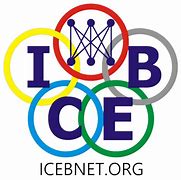Document Type
Article
Abstract
The new e-conomy characterizes itself by its newness and its potentiality of growth. In order to participate in this activity, the companies are renewing their processes of business, as well as the old ways to serve and to attract their clients. This has motivated traditional business to move its commercial operations towards others, much more dynamic, that are based on using computer supports and the use of networks through the connection to the Internet and the web pages.
The main obstacle for using new technologies has been the great number of Spanish business, specially the small and medium ones, that have restricted themselves only to include these information technologies to apply them exclusively, to their processes and internal procedures, instead of using them to overcome the difficulties and the barriers imposed by their environment, or to improve their competitiveness and their position in the market. With all the above, this work will be based on the examination and overhaul of the “Resource-Based View” (RBV), of the Theory of the Distinguishing Competitions, and its adjustment to the dynamic and turbulent environment that characterizes this segment of business.
The incorporation of technological advances in the telecommunications and computer science fields, has supposed the consolidation of worldwide scale markets that are provided with a great facility for the analysis of an ample volume of information, that allows decision taking in real time.
The sum of these new technologies in the companies can be turned into inimitable resources, where the characteristics of their products it have to be differentiated in a very evident way. That is the reason why it can be generated competitive advantages, especially in costs leadership or differentiation of the products.
The processes known with the name Digital Economy B2B or B2C, receive the denomination of e-business, including the field that is known as e-conomy. In agreement with [1, p.21], there are different steps in the evolution of initiatives by e-business channel, that go from the provision of information, to the creation of markets, which would culminate the cycle of this evolution.
The main conclusions will be: A great part of the Spanish companies are in the first step of the preparation for e-business cycle.
Another of the detected problems is the difficulty that exists to get to know the behavior habits of the consumers. Finally, we will mention the nonexistence of a model of enterprise culture for small and medium business, which could support the technological infrastructures that are necessary to complete all the stages of e-business, as well as the construction of trustworthy and periodically updated databases, that would go over the profiles of the customers.
Recommended Citation
Segret, José Antonio Lastres and Sanabria, Rocío del Carmen Moreno, "The Impact of the New Economy in Spanish Firms" (2001). ICEB 2001 Proceedings (Hong Kong, SAR China). 50.
https://aisel.aisnet.org/iceb2001/50


